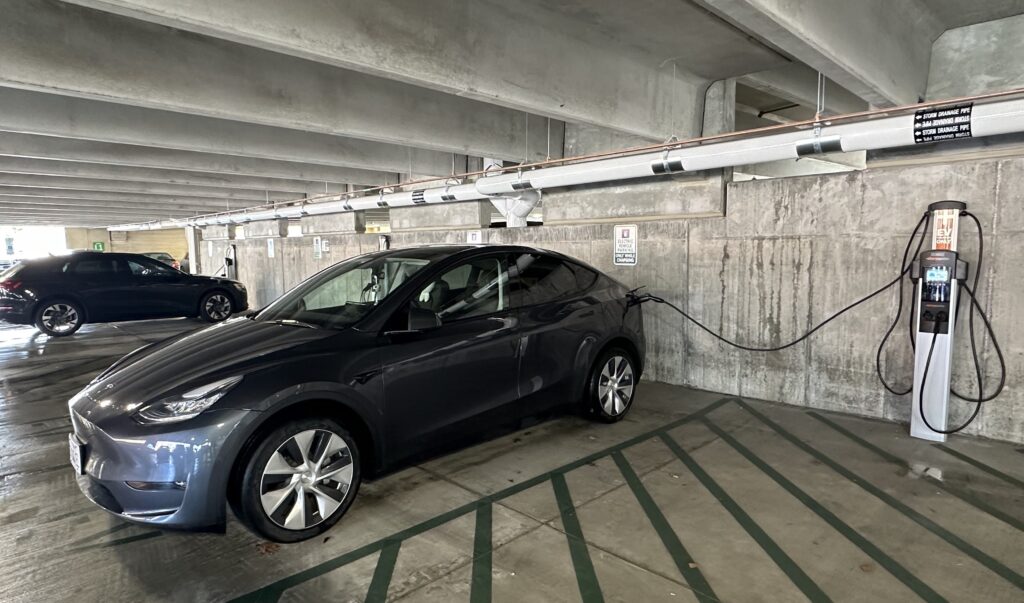 There is a pressing global need to ensure the efficiency, sustainability, and resilience of transportation systems for both urban and rural communities. Transporting people and goods with fossil-fueled vehicles has long been recognized as unsustainable for most communities — but different communities will face different challenges. From electric vehicles to ride-sharing services, our transportation systems continue to evolve, and these new developments demand new research.
There is a pressing global need to ensure the efficiency, sustainability, and resilience of transportation systems for both urban and rural communities. Transporting people and goods with fossil-fueled vehicles has long been recognized as unsustainable for most communities — but different communities will face different challenges. From electric vehicles to ride-sharing services, our transportation systems continue to evolve, and these new developments demand new research.
To this end, interdisciplinary experts at the University of Illinois are working together to investigate fundamental questions about infrastructure design and planning, energy sources, integration of transportation across multiple modes, public policy, and regulation.
The project, Sustainable Low-Carbon Alternatives for Meeting Mobility Needs of Urban and Rural Communities, aims to provide a grand vision and detailed engineering guidelines for next-generation decarbonized transportation systems. The vision and guidelines aim at serving the mobility needs of both urban and rural communities, and ensuring coupled clean energy supply for agricultural production, industry operations, and residential buildings, over the next 10-20 years.
iSEE is supporting the project with $300,000 — part of a $1 million anonymous gift that the Institute is designating for sustainability research initiatives.
“We are pleased to invest in research into holistic, next-generation transportation systems that sustainably and equitably serve the mobility needs of both urban and rural communities,” said Madhu Khanna, iSEE’s Alvin H. Baum Family Chair and Director. “This new project will address a range of open questions related to infrastructure design and planning, energy sources, transportation service integration, emission reductions and other environmental impacts, the economic and behavioral incentives to adopt alternative transportation modes, and the design of policies needed to accelerate this transformation.
“We are particularly excited to have Civil & Environmental Engineering Professor Yanfeng Ouyang lead an interdisciplinary team that will grow our research program in this area with a potential for attracting external funding.”
The team will focus on two initial efforts that will form a solid foundation for future work:
- Investigating ways of planning for ubiquitous and equitable access to electric vehicle charging in rural areas and small towns, and assessing community-level impacts. The proposed effort will prepare pilot programs for low-cost charging access in a variety of locations, at scales of hundreds of units.
- Conducting small-scale experiments on alternative mobility services and pricing strategies for communities (specifically Rantoul and Champaign-Urbana). Team members will investigate how mobility service needs can be fulfilled in low-density rural areas with different options for different prices and wait times.
“Partnering with iSEE on this project has given us many valuable opportunities,” said Ouyang, who is the George Krambles Endowed Professor of Rail and Public Transit and also serves as Associate Director for Mobility at the Illinois Center for Transportation. “They’re supporting us not only with start-up funding for team building and for laying our foundational plans, but also by setting up roundtables with local industry and community leaders who are at the frontier of the sustainable mobility space.”
Ouyang’s co-PIs are Julie Cidell, Professor and Department Head of Geography & Geographic Information Science; Ria Kontou, Assistant Professor of Civil & Environmental Engineering; Philip Krein, Grainger Endowed Chair Emeritus in Electric Machinery and Electromechanics in Electrical & Computer Engineering; Lewis Lehe, Assistant Professor of Civil & Environmental Engineering; and Moses Okumu, Assistant Professor in the School of Social Work.
Read more information about the project on the iSEE webpage.
One of the first activities being organized by co-PIs connected with this project is a May 16-17, 2024, workshop titled “Envisioning Equitable Transitions to Sustainable Transportation Systems.” A diverse group of researchers, educators, industry professionals, and activists will discuss urgent questions about transitioning to low-carbon transportation systems — whatever they might be — while addressing the needs of all populations regardless of race, ethnicity, or socioeconomic standing.
The conference is jointly organized by the University of Illinois Urbana-Champaign and the University of Illinois Chicago (UIC) and is supported by generous funding from the Alfred P. Sloan Foundation. For more information visit the iSEE webpage. Register on our Google form.
— News release by April Wendling, iSEE Communications Specialist